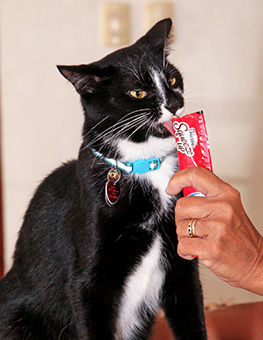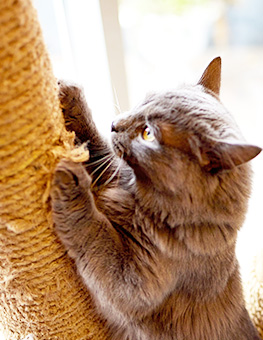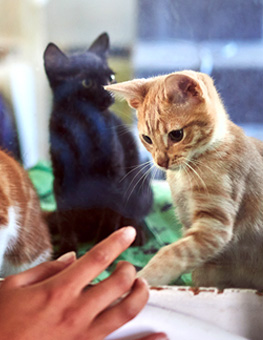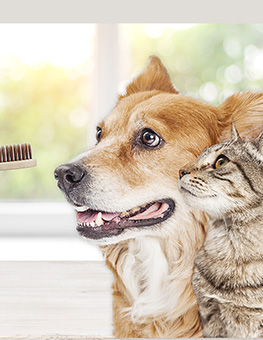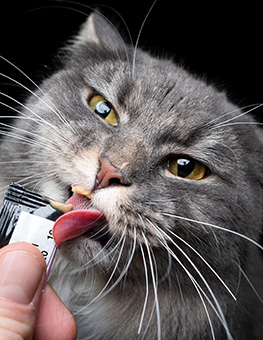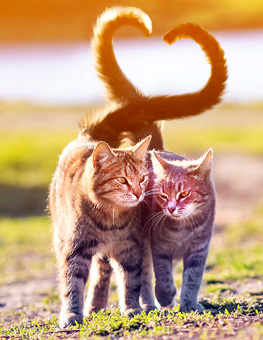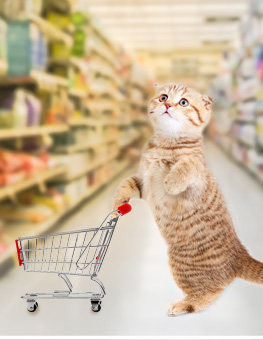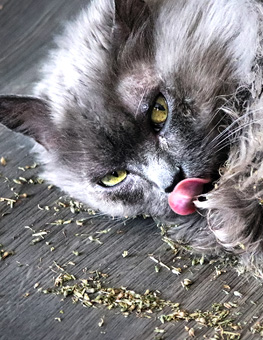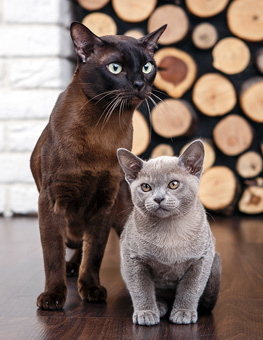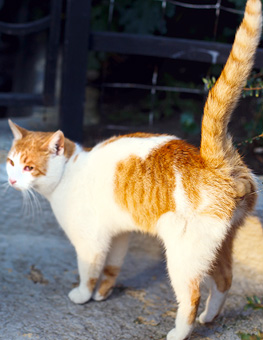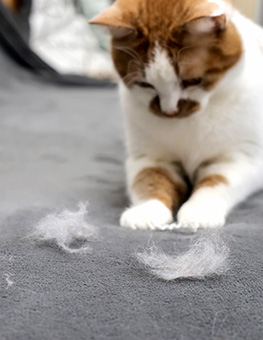Diet Needs for Kittens
Kittens grow at an astounding rate, making proper nutrition vital for healthy growth and development.
From birth to 6 weeks, these tiny, blind and helpless bundles of fur learn to see, walk, play and begin to eat solid food. By the end of 6 weeks, they quadruple their weight, use a litter box and begin to seriously explore their surroundings. Rapid growth continues until they reach 6 or 7 months, at which point the female growth tapers off while the males continue to gain weight for another 4 to 8 weeks.
Proper nutrition is key to fueling this tremendous rate of physical growth and development. An optimal diet for your kitten will provide the right balance of nutrients and calories to ensure her vital organs, especially the immune and musculoskeletal systems, grow and develop properly. It also will give her a healthy start in life and help protect her from disease as she matures. Here are some tips to keep in mind:
- Kittens can begin solid food around 4-5 weeks of age while they continue to nurse. At this age, a high-quality, soft food is easier to chew and digest. Begin weaning by mixing one part soft food with two parts water or kitten milk replacement. If you’re feeding dry kibble, use a 1-3 ratio of kibble to water. Gradually reduce the amount of liquid until they are eating just kitten food by 8-10 weeks of age.
- Make sure you feed your kitten a high-quality, highly-digestible food specially formulated for kittens. Do not feed food that is labeled an “adult” or “maintenance” formula. Keep kitten food available at all times. Kitten formulations are nutrient dense and contain the right balance of high quality meat proteins, calories and fatty acids. They also provide a full complement of vitamins and minerals including calcium, phosphorus, zinc, vitamin A, vitamin D, thiamin, and taurine. Never feed your kitten food that is formulated for dogs or puppies.
- What constitutes a “high quality” food? Felines are obligate (strict) carnivores. Their systems are designed to digest animal-based (meat), rather than plant-based proteins; as a result, they can’t utilize carbohydrates derived from grains like corn, wheat, soy and rice well. A high carbohydrate-based diet, therefore, is nutritionally deficient for both kittens and cats.
- Water is vital to your kitten’s overall health. Whenever your kitten is fed canned or dry food, always have fresh clean water available.
- Most commercial kitten foods are formulated for your cat’s first year of life. After that, you can gradually switch your kitten to a high-quality, adult cat food. Any changes to your kitten’s diet should be gradual (over the course of 7-10 days) to avoid intestinal upset. Start with a 25/75 mix (new/old) for a few days, increase to a 50/50 mix for a few days, and so on until the switch is complete.



